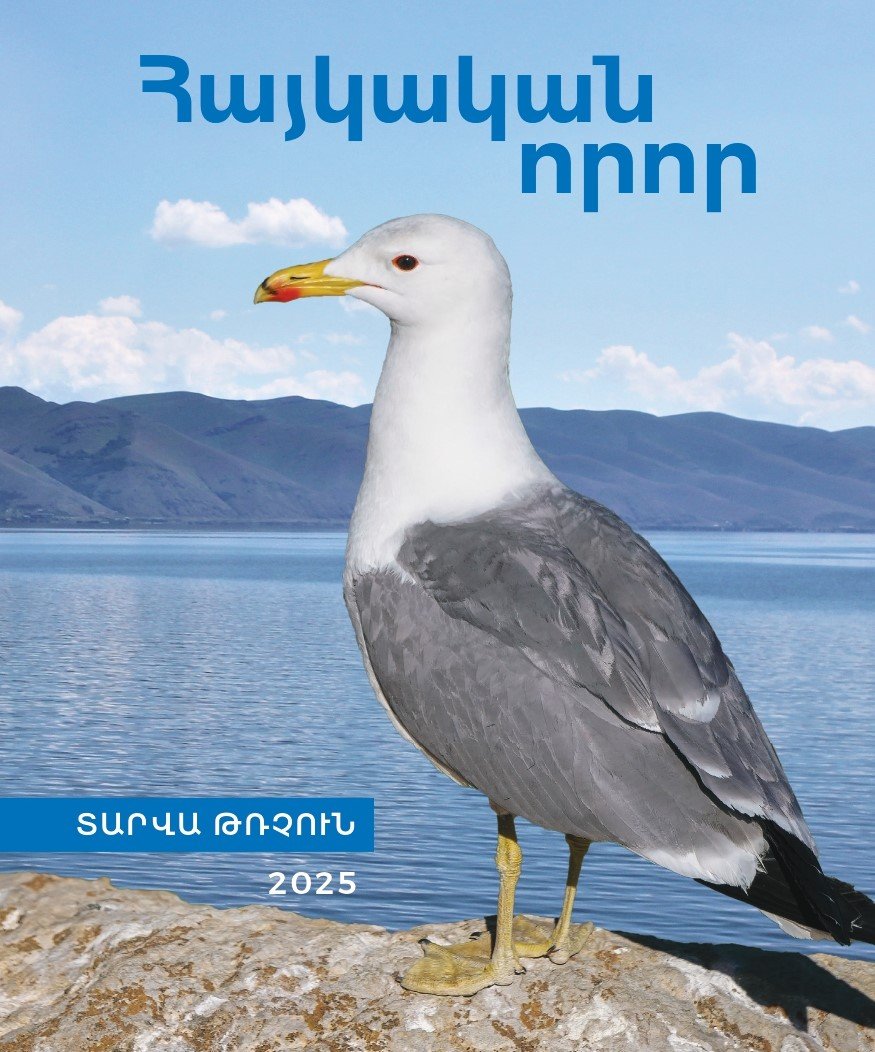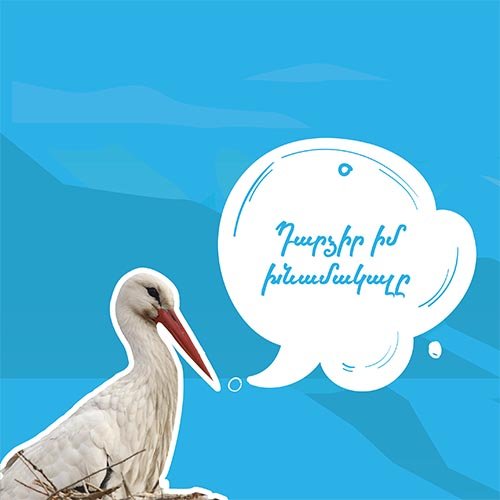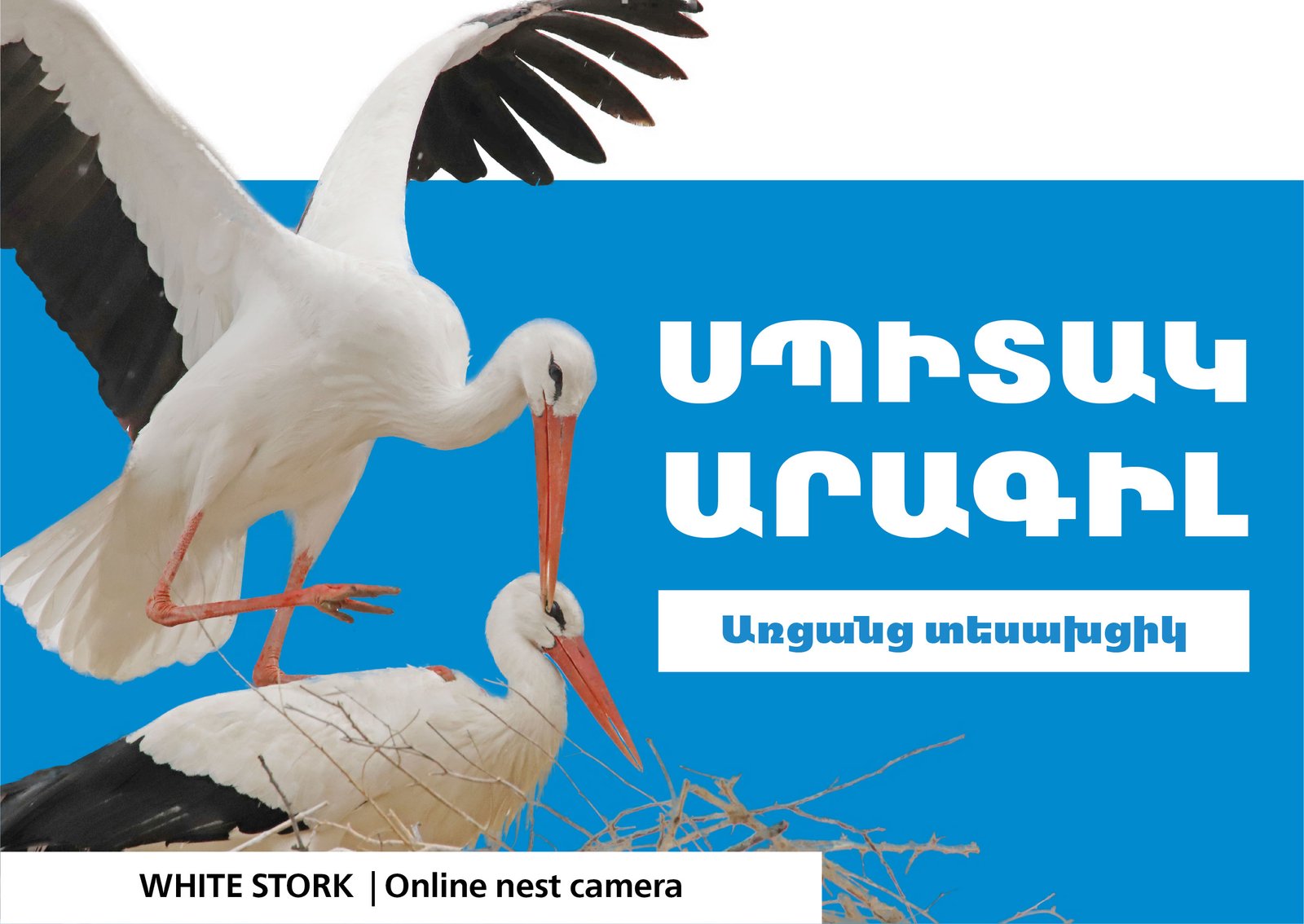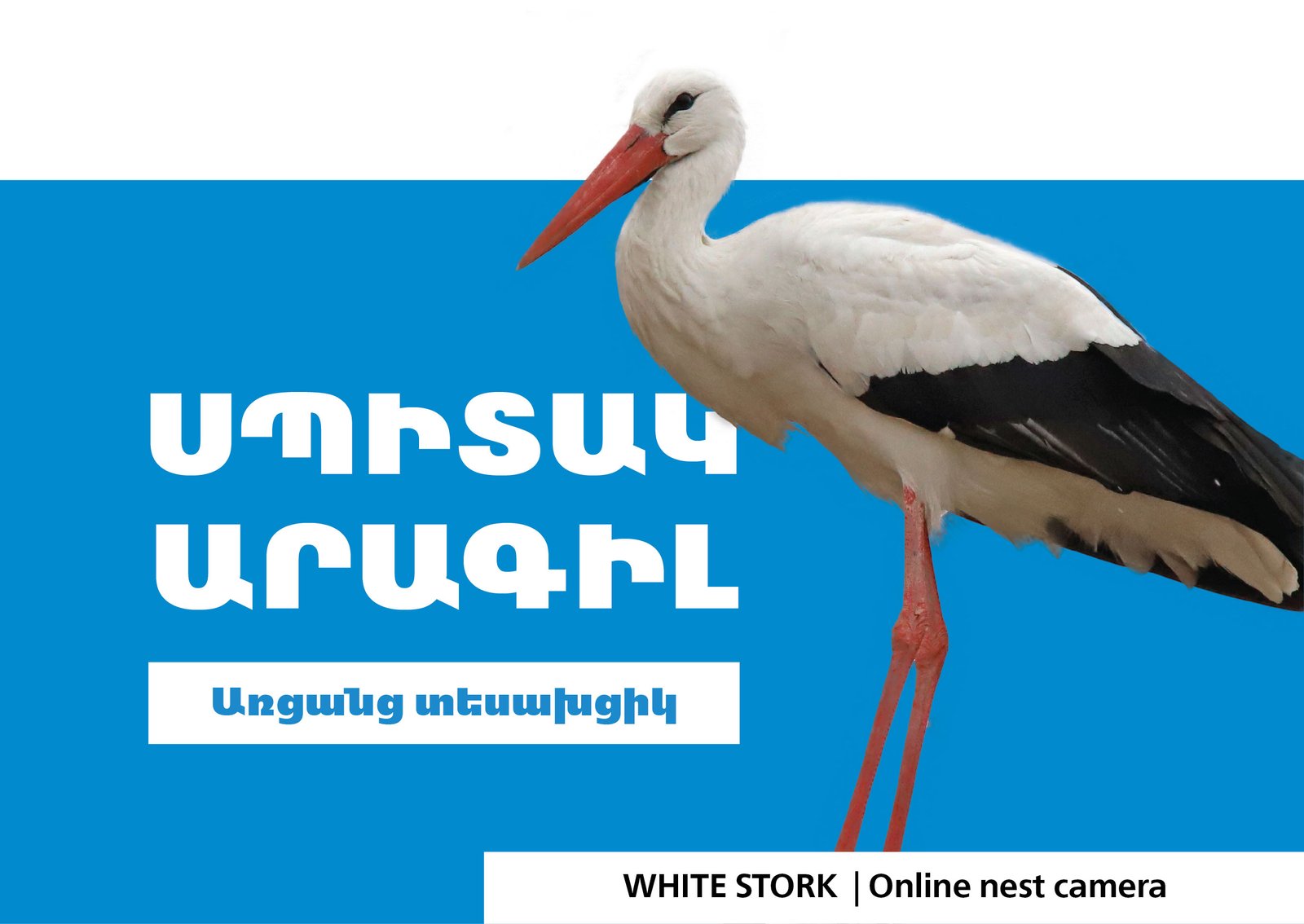
As you remember, the Armenian branch of NABU announced 2021 as a year of Egyptian vulture (Neophron percnopterus). Egyptian vulture is a small Old World vulture and the only member of the genus Neophron. It is one of the 4 vulture species of Armenia and the only migratory one. According to IUCN red list it’s conservation status is “Endangered” (EN). The species is distributed from Southern Europe and Africa eastwards to the Tien Shan Mts. and Pakistan. In the territory of the Republic of Armenia it is found in almost all regions. Egyptian vulture nestles on high mountain cliffs, preferably in deep rocky canyons, at 800–2000 m above sea level. The typical clutch consists of two eggs which are incubated in turns by both parents. The first egg hatches after about 42 days. Young birds fledge and leave the nest after 90 to 110 days.
Egyptian vultures are one of the most important links in ecosystems and the food chain, as they feed on carrion and act as sanitizers to prevent the spread of disease. Usually this species approaches the carrion at the very end, when all the other scavengers have already left. Egyptian vultures are also one of the very few species of animals that can use tools to find food: in their case - stones. With the help of stones, they break ostrich's eggs and enjoy the meal.
Main reasons for the decrease in the number of this species, of course, is related to human activity. Man-made infrastructures disrupt, poison, and destroy natural ecosystems and their inhabitants. It is very important to realize, that only sustainable and cyclic models will bring harmony with nature. Same problems exist also in Republic of Armenia and these were one of many reasons these for NABU Armenia to start a study of nesting, breeding and migration of these unique birds. To make the work more efficient, an online camera was installed on the nest of one of the Egyptian vulture’s nests, which allows us to study their nesting behavior. The project also allows everyone to check the daily life of birds at any time of the day, to make small personal discoveries about them, to be closer to nature, because in order to love and preserve nature, it is necessary to know it.
The work continues in the fields of eco-education, field research and scientific research.
We will keep you informed and updated about the Egyptian Vulture Survey by NABU Armenia.
And now enjoy this little video from the already famous couple's nest.







